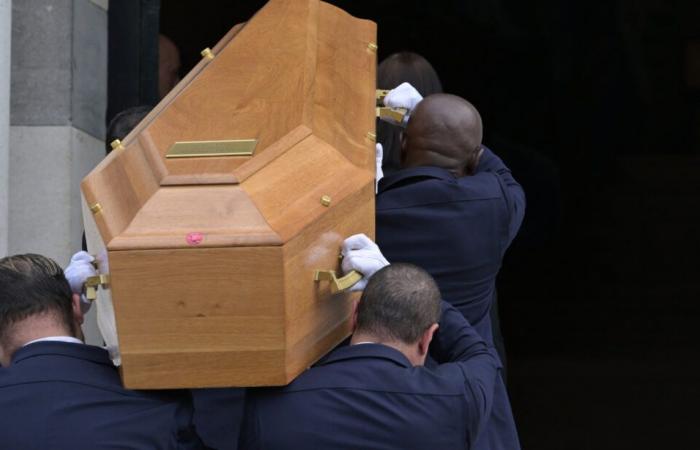The Directorate General for Competition, Consumer Affairs and Fraud Prevention (DGCCRF) is warning consumers about “deceptive commercial practices” implemented by funeral insurance and funeral services professionals. Methods already pointed out by the administration since 2015 and to which the operators have promised to return by July 1, 2025.
After the mourning for the loved ones of the deceased, come… the scams? On the eve of All Saints' Day, this Thursday, October 31, the General Directorate for Competition, Consumer Affairs and Fraud Control (DGCCRF) warned, in a press release, of “persistent deceptive commercial practices in the funeral insurance and funeral services sectors”.
These shortcomings concern funeral insurance contracts, which are generally taken out by young retirees or people who have recently entered a retirement home to spare their loved ones the costs of their funeral. Remember that in 2023, 205,000 deaths were covered by such funeral insurance, or 32% of the 638,000 annual deaths, according to France Assureurs.
In detail, the DGCCRF points out various infringements, in particular a certain lack of transparency and readability for the consumer. For example, some contracts do not mention the remainder to be paid by the family of the deceased, which may include the costs of digging a grave.
READ ALSO: Funerals: why dying is becoming more and more expensive
In the same way, some operators maintain confusion between compulsory regulatory services (such as the provision of a coffin, cremation or burial) and optional services (such as funeral toilets, the supply of vaults or work of burial). marble work). Of the “significant differences between the price of coffins displayed and that charged to families” were also observed.
In addition, some proposed contracts include clauses that do not respect the rights of the consumer, such as offering direct debit as the only means of payment or hiding the contact details of the mediator, precisely responsible for intervening in the event of a conflict between the the insurer and the family of the deceased.
Operator commitments
In total, a third of the 69 operators inspected (including bank agencies, insurers, mutual societies and brokers) “presented anomalies, which resulted in 27 warnings and 5 compliance orders”indicates the Fraud Repression which carried out its last investigation into the funeral insurance sector in 2022.
READ ALSO: Funeral and death insurance: the “ruinous investments” of “the business of death”
As a reminder, in 2015, the DGCCRF had already pointed out the lack of information provided to the insured but also misleading commercial practices in the sector. On that date, the anomaly rate already stood at 23%. In view of all the shortcomings observed – and above all, their persistence over time – this administration has initiated a new national investigation which began in 2024 and will continue until 2025.
Especially since the DGCCRF is not the first nor the only one to point out these bad practices. Requested by the Ministry of the Economy and Finance, the Financial Sector Consultative Committee (CCRF) published an opinion on October 15, emphasizing “the lack of overall readability of the pre-contractual information provided to subscribers, in particular due to the inappropriate nature of the regulations applied to funeral contracts”.
READ ALSO: What are the challenges of “human composting”, these “green funerals” banned in France?
Contacted by Mariannethe CCRF ensures that in response, professionals have committed to strengthening the readability of their contractual information, but also the guarantees of their policyholders. For example, by shortening the waiting period – designating the period of time between the subscription of the funeral insurance contract and its effective date – to a maximum of one year. The execution of these commitments must take place, at the latest, July 1, 2025. If the CCRF does not have the power to sanction, it will be responsible for carrying out an assessment of the proper application of these guarantees, one year after their implementation. in poor performance – that is, in July 2026.






